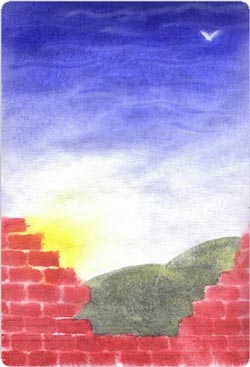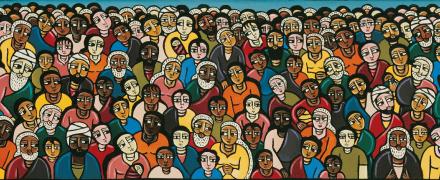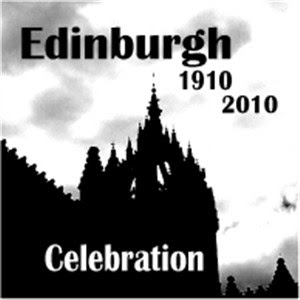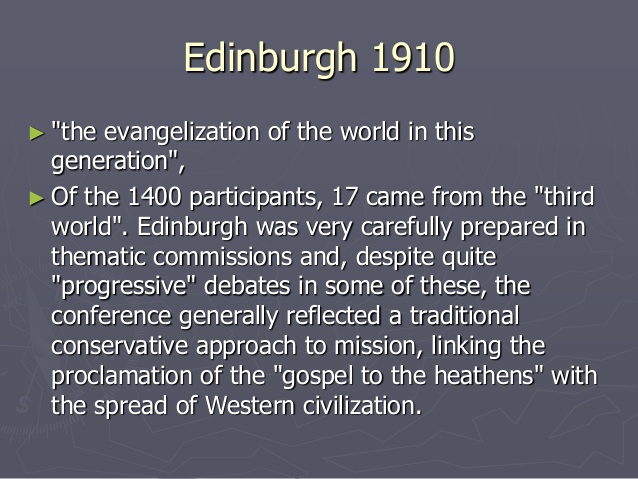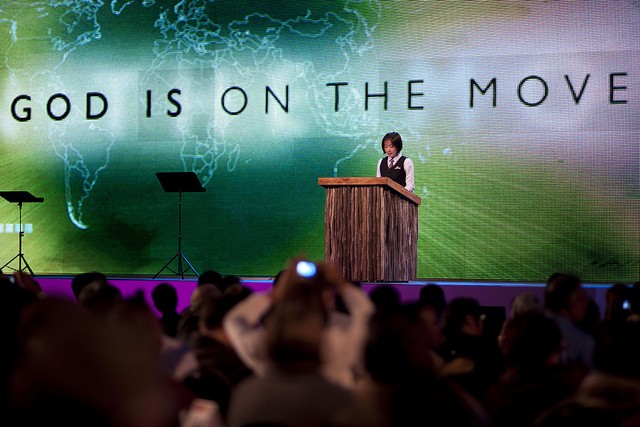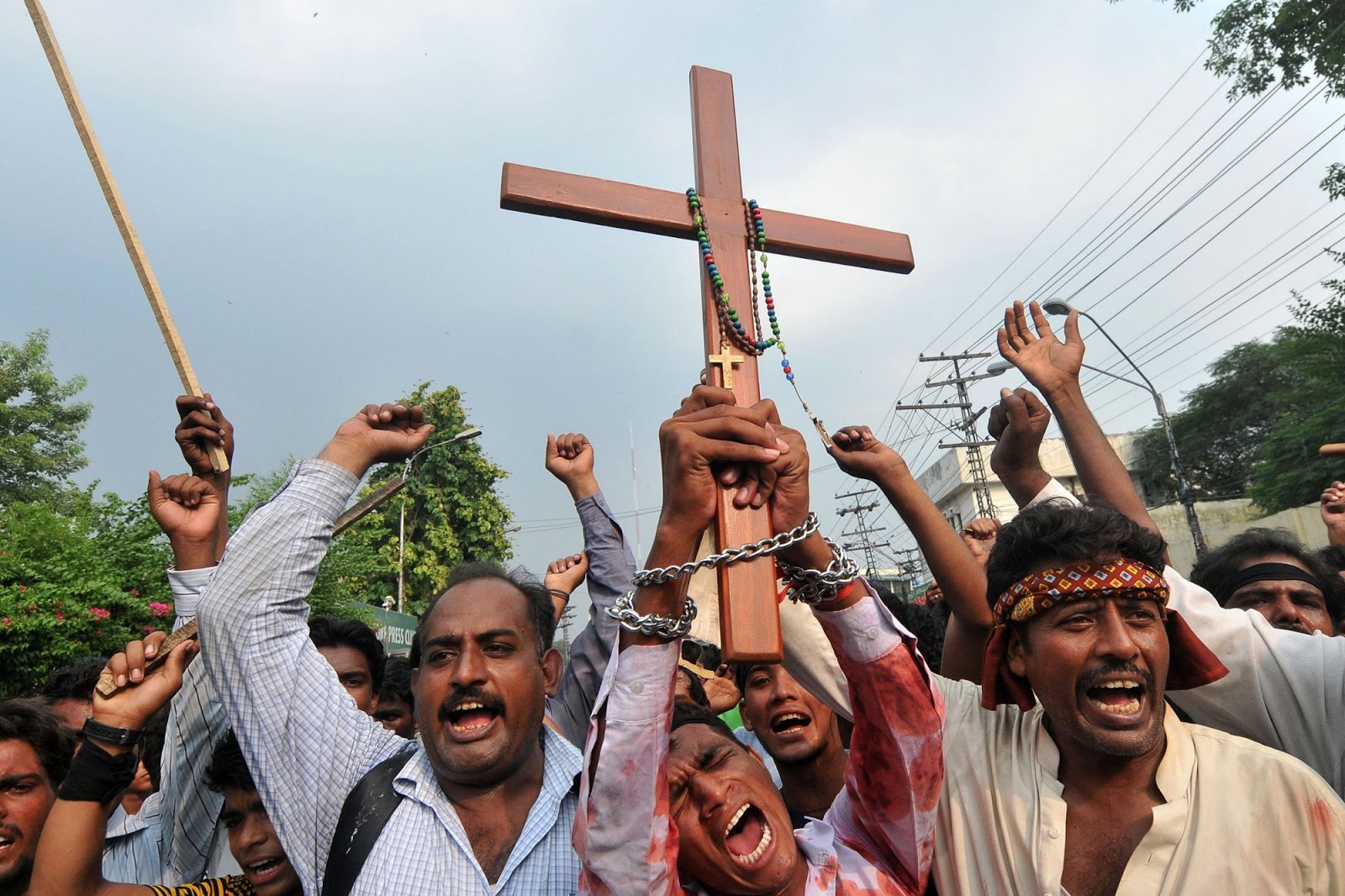The Post-Soviet Space as Locus Missologicus
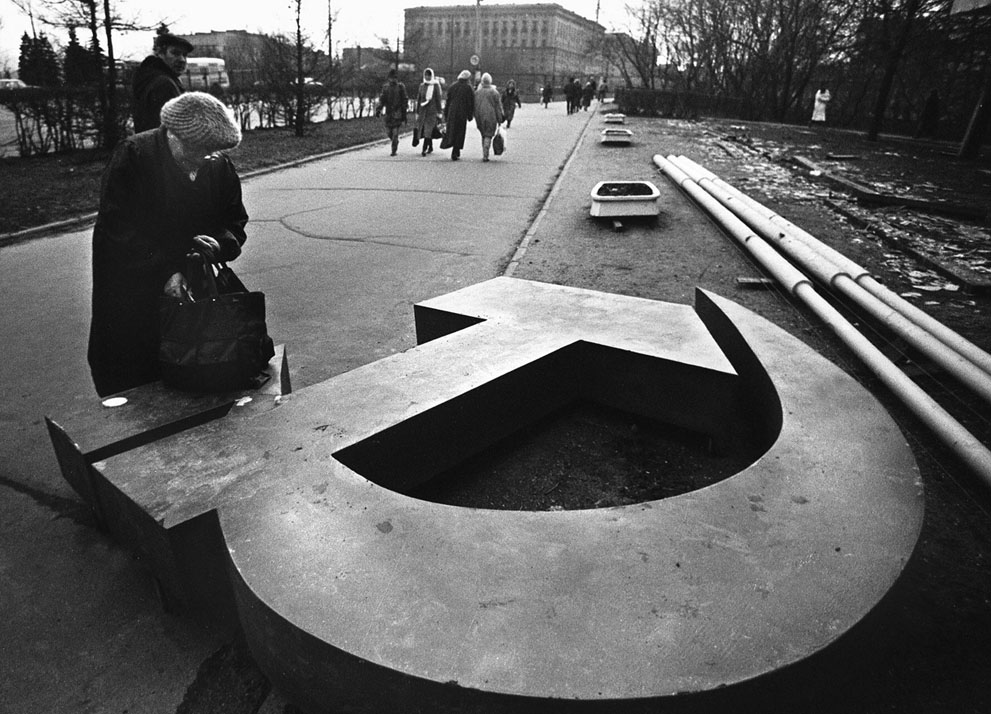

Up until now, the global post-Soviet space has been a blank spot on the map and in the history of the universal Church. Everyone knows about Mr. Putin. Some know about his friend, Patriarch Kirill. But no one sees beyond these political symphonies of Christianity, much like those who cannot see the forest for the trees. When the talk is about Christianity, then the focus is on the gilded domes and photos of well-fed priests, and recollections of defending traditional values, as well as vague notions of Russian spirituality. Rarely are concerns raised about the mission. And this is despite the fact that after the collapse of the USSR, this territory was seen as the most promising in terms of missionary activity.
I don’t think that today any of us can immediately respond to questions, such as what is the basis of the strategic significance of this region for the history of global Christianity? Why is this region worthy of our interest? What are the reasons for investing in the development of local churches and ministries? Most of the answers to these questions lead us back to the memorable date of the dissolution of the USSR, when the ‘Evil Empire’ collapsed and the Iron Curtain fell, when vast expanses of Eurasia welcomed those who sought to spread the Word of God. Almost 24 years have passed since then, and the memory is fading. Indeed, not a single memory will remain of those times. This date alone is not enough to form an opinion on the state of affairs and to propose a coherent strategy for missions.
The situation in post-Soviet countries has changed considerably. In lieu of aggressive atheism, what now prevails are no less aggressive manifestations of the traditional titular religions – Christianity and Islam. Instead of the straw bosses of Perestroika (reformation), we are now witnessing the return of the KGB, who seeks not to reform, rather to reconstruct the Soviet empire.
There is another significant event in the region that has recently rocked the whole world – the Kievan Maidan and the subsequent war waged by Russia against Ukraine. As much as Russia would like to transform the post-Soviet space into Soviet territory, the (post) Soviet space is breaking apart.
With Ukraine, Europe might once again become Christian. With Europe, Ukraine might once again become European. Ukraine without Russia might finally become Ukrainian. Russia without Ukraine risks entering into barbarism, going dark, losing face and embracing brutality. Without Russian Orthodoxy, the Ukrainian religious map will be different. Russia without the Ukrainian Orthodox loses its special status. This changes the balance of power and influence in Europe and throughout Eurasia.
There is reason to believe that these two events are directly connected, and the second is no less important than the first, because it significantly changes the map and the picture of the mission. If the collapse of the USSR brought to life a general missiology for post-Soviet people such as dispersed Russians (i.e. the Russian-speaking citizens of the Soviet empire who have been equated with Russians), then Maidan requires that we shut down the neo-imperial ambitions for a “New Russia” and set apart national missiologies.
As it turned out, the main efforts of missions went to the maintenance of the spiritual community that was inherited from the Soviet Union. For national elites of the former Soviet republics, such Christian ministries and churches were seen as residual forms of colonialism. This is why we have not seen any national missions that have met with great success. Evangelism in the Russian language points directly to Moscow as a cultural and religious center (even if there is no talk about political issues). National centers have hardly evolved.
Today, many have criticized the Western missions for disseminating not so much the gospel as Western culture. But at the same time, the reverse is true: consciously or not, they supported post-Soviet forms of consciousness and communities which are bound by Soviet history and today’s Russia as the successor of the Soviet Union. Thus it has been convenient, schematic, easy, and comprehensible to simply integrate, generalize, turn a deaf ear.
And so it is that after Maidan, the map of Eurasian Christianity has again radically changed. The post-Soviet space is no more. There is Russia (and Belarus), trying to keep its neighbors in the Soviet narrative. There are Ukraine and Moldova, oriented to the EU. There is Transcaucasia finding itself between Eurasia and the Euro-Atlantic realm. There is Central Asia, trying to maneuver between the post-Soviet pull and Islamic pressure. All of them require a special approach, all speak their own languages and invoke their traditions, rooted in the forgotten pre-Soviet era.
The many faces of Eurasia take us back into history and to the map of missions, making it more colorful.
Local Christians have stopped keeping watch over developments and have begun to pose difficult questions, both about these developments and about themselves. «What are we coming back with? What has happened to us, what do we have to talk about, and what can be useful? What are we going to do next? Do we have a vision for the country and the region as a whole?»
It turns out that Christians, who dreamed of the end of the Soviet Union and religious freedom, who, living through those years with the hope of a new life in the post-Soviet era, did not think about alternatives, and existed as one with society. They did not have ideas of their own about how society could and should be changed, including through missionary efforts, Christian education and social service.
Today, churches have become hostages of the socio-political order and are now seriously divided along several lines: the sacralization or desacralization of power; obedience or resistance; order or freedom; premilleniarism or postmilleniarism; sectarian ecclesiology or the Kingdom of God; solidarity with the government or solidarity with the people; the silent majority or the influential minority; empire or nation-state; niche sectarianism or national leadership; the same old dynamic, or something different. Events in Ukraine have intensified this division. The return of religion to the public space has not brought unity to the national churches, rather it has only aggravated their relations. The engagement of churches in social and political issues has proved to be inevitable, as has the question: which side is God on? If neutrality is not possible, then which side is right?
In almost every post-Soviet country, the church enjoys the highest trust of the population. There is no ruling power that can resist taking advantage of this. On the one hand, by opening the identity of post-Soviet society this invites the Christian community to participate in the formation of a renewed version of culture and social life. On the other hand, there is an ever-increasing disappointment directed at political Christianity. The highest confidence in the moral and spiritual authority of the church exists alongside distrust in its political positions. In search of spiritual support, the people are drawn to the church, only to find that it already has been bought and paid for, and politicized.
The crisis of church institutions manifests itself in two forms: the indifference of the majority and the opposition of the minority. Most maintain a nominal belief, but the more the church is diluted, the more it loses its Christian content and is filled with an explosive mix of nationalist-Orthodox-Stalinist beliefs. An oppositional minority has left the churches for «simple Christianity» and «fringe Christianity,» beyond the church walls, to fringe circles, grassroots ecumenism, alternative communities, internal emigration.
In this regard, we can talk about post-Soviet post-Orthodoxy – the end of the Orthodox tradition. Atheism has destroyed institutionalized forms of Christianity. Traditions have been disrupted, and so if one does come back, then it is only to the beginning, to the gospel and communion with other traditions, because Orthodoxy without catholicity is not imaginable, and without reformation it is not feasible.
Stalinist orthodoxy has exhausted itself. But in Russia, evangelical Christianity has failed to materialize. Evangelical Christianity, created in the image and likeness of orthodox sectarianism, is condemned to a choice: to follow after ROC on the same path with little influence, or to radicalize and become true to itself. There is a new demand for new versions of Orthodoxy and Protestantism, which could each help the other revive authentic forms of Christianity in today’s environment of almost total disillusionment with church institutions.
Russian Christianity is in a deep crisis and is not likely to be able to offer anything even to its own parishioners, much less to surrounding society, and it has absolutely nothing to offer other traditions or to its neighboring countries. We need to construct our plans and approaches to the mission without illusions about the mysterious Russian soul and the spiritual depth of Orthodoxy. Those who foster naive ideas of the messianic role of Russia are cruelly deceived. Russia has not emerged as the source of spiritual awakening in Eurasia. Throughout the post-Soviet years, it was a recipient of missionary aid. It is only by shedding its imperial ambitions and false messianism that Christian Russia will succeed in undergoing its own renewal and serving its neighbors.
Many opportunities are unfolding before us today: the disappointment in the Orthodox Church and local Protestantism can give birth to a quest for authentic Christianity; the allure of power and exclusivity can give birth to repentance and humility; pride in history can lead to fragmentation and renewal.
What can be done for Russia to make it more Christian and evangelical in its Christianity? We must cultivate the budding seeds of the future, of leaders and the community focused on the other Russia, on the evangelical image of Orthodoxy and open society, at least on an enlightened monarchy and enlightened Orthodoxy.
What can be done for the other countries of Eurasia? We can distinguish between «Russians» of different stripes – Ukrainians, Tatars, Moldovans, Belarusians, Kazakhs, Ingush, Chechens, Yakuts … We can see the uniqueness of their situations, respect and assess national and local cultures, help reveal distinctive forms of Christianity, encourage creative original approaches to the mission in special contexts, include them in enriching global communication. The peoples and cultures of Eurasia should be part of a larger, global Christian community, overcoming post-Soviet isolationism and opening the door to completely new meetings and syntheses.
Eurasia is the unbreakable, indivisible unity of Europe and Asia. Its value is not of a separate nature and exclusive path, but in its points of intersection and co-presence. It is precisely these points of intersection that give birth to the future of Christianity, that renew its map, generating new centers and routes.




